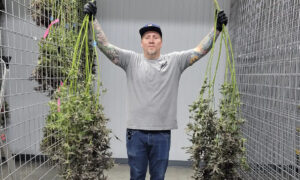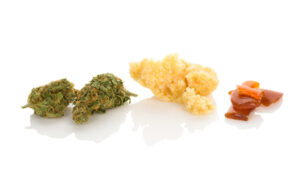Tilray Product Shows Promise Reducing Nausea Caused by Chemotherapy In World First Clinical Trial

The trial will now move to a larger phase
Tilray, Inc., a global leader in cannabis research, cultivation, production, and distribution, today announced that Australian researchers have published preliminary results finding that one of the company’s GMP-produced products is showing promise reducing nausea and vomiting for cancer patients undergoing chemotherapy in a world’s first clinical trial.
Results published in Annals of Oncology found a significant improvement in the control of chemotherapy-induced nausea and vomiting. A quarter of the patients taking medicinal cannabis experienced no vomiting and nausea, compared to 14 percent of people who took a placebo. The pilot phase of the study ran for two-and-a-half years with 81 participants enrolled. To be included in the study, patients had to have already experienced nausea and vomiting during chemotherapy despite having taken nausea prevention medication.
“The side-effects associated with chemotherapy are some of the primary causes of treatment discontinuation”, says Philippe Lucas, Vice President of Global Patient Research and Access at Tilray, “so improving the control of nausea and vomiting can not only improve the quality of life of patients, by allowing those affected by cancer to complete their treatment it can also potentially save lives.”
“Nausea and vomiting are among the most distressing and feared consequences of chemotherapy,” said chief investigator, Peter Grimison, medical oncologist at Chris O’Brien Lifehouse and Associate Professor at the University of Sydney. “These encouraging results indicate medicinal cannabis can help improve quality of life for chemotherapy patients.” Side effects such as sedation, dizziness and drowsiness were rated as moderate to severe in about one third of people using medicinal cannabis, but these are considered manageable according to the researchers.
“The trial will now move to a larger phase to determine with much more certainty how effective medicinal cannabis is and whether it should be considered for use in routine cancer care,” Professor Grimison said. “The next phase of the trial is ongoing and will recruit an extra 170 people.”
The world’s largest trial of medical cannabis at the time it launched, the CannabisCINV study is a collaboration between Chris O’Brien Lifehouse, the University of Sydney, the NHMRC Clinical Trials Centre and leading New South Wales (NSW) cancer centres. Tilray is supplying the product for the trial, which is being funded by the NSW government.
About Tilray®
Tilray (Nasdaq: TLRY) is a global pioneer in the research, cultivation, production and distribution of cannabis and cannabinoids currently serving tens of thousands of patients and consumers in 15 countries spanning five continents.
Forward Looking Statements
This press release contains “forward-looking statements”, which may be identified by the use of words such as, “may”, “would”, “could”, “will”, “likely”, “expect”, “anticipate”, “believe, “intend”, “plan”, “forecast”, “project”, “estimate”, “outlook” and other similar expressions, including statements regarding our growth potential, the sustainability of growth, the optimization of our facilities and estimated net savings, our ability to become Adjusted EBITDA positive by the end of 2020, demand for our products and the medical and Adult Use cannabis markets, medicinal regulatory approvals and clinical trials, anticipated plans for strategic partnerships and acquisitions, and future sales of our common stock. Forward-looking statements are not a guarantee of future performance and are based upon a number of estimates and assumptions of management in light of management’s experience and perception of trends, current conditions and expected developments, as well as other factors that management believes to be relevant and reasonable in the circumstances, including assumptions in respect of current and future market conditions. Actual results, performance or achievement could differ materially from that expressed in, or implied.




































